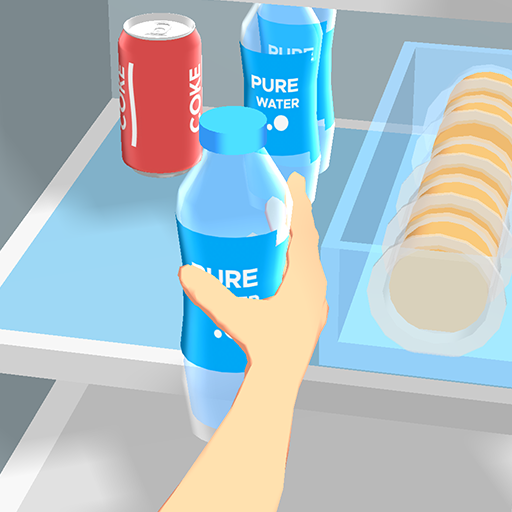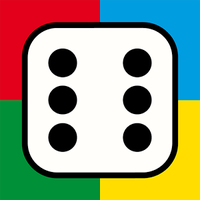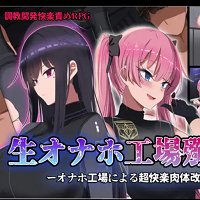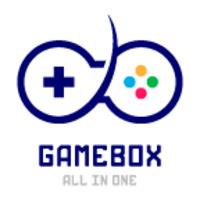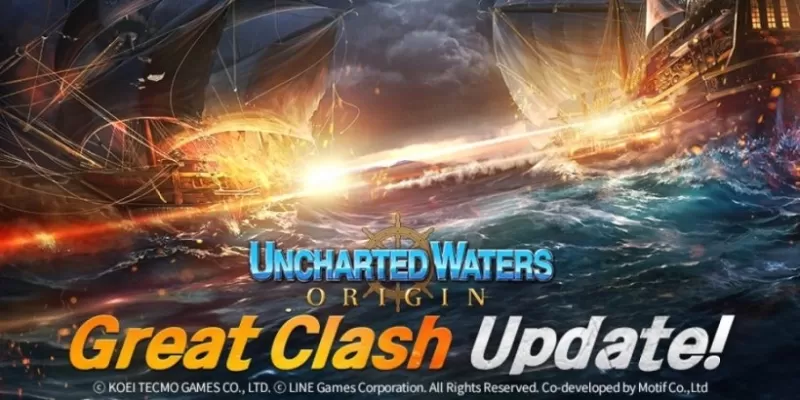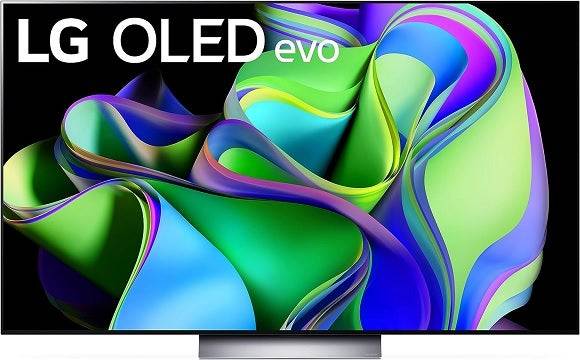There's a peculiar issue brewing on the PlayStation Store and the Nintendo eShop that has gamers talking about something they're calling "slop." Over the past few months, these digital marketplaces have been inundated with games that seem to use a mix of generative AI and deceptive store pages to lure players into buying substandard, misleading games. This trend, first highlighted by Kotaku and Aftermath, has notably affected the Nintendo eShop, with the issue spreading to the PlayStation Store and particularly impacting the “Games to wishlist” section with a plethora of unusual games.
The games in question aren't just your typical low-quality releases; they represent a deluge of similar-looking products that are pushing other titles off the shelves. These "slop" games are predominantly simulation games, almost always on perpetual sale, often mimicking themes and even names entirely from other popular games. They frequently employ hyper-stylized art and screenshots that appear to be generated by AI, yet in reality, they fail to match the promised visuals and gameplay. These games often suffer from poor controls, technical glitches, and lack substantial content or engaging features.
A small group of companies is reportedly behind the relentless production of these games, as noted by YouTube creator Dead Domain. These companies are notoriously difficult to track and hold accountable, often lacking clear public websites or business information, and some even change their names frequently to confuse consumers.
The increasing presence of these games has led to a significant outcry from users of both platforms, calling for more regulation to curb the flood of "AI slop." This is particularly pressing given the declining performance of Nintendo's eShop, which users report is becoming slower as more games clutter its pages.
To understand how these games are flooding the storefronts, I delved into the process of game distribution across major platforms like Steam, Xbox, PlayStation, and Nintendo Switch. I interviewed eight anonymous experts from the game development and publishing fields, all with recent experience in releasing games on these platforms. Their insights shed light on why some stores are more affected by "slop" than others.
The Magical World of Cert
The process of getting a game onto these storefronts starts with a developer or publisher pitching their project to gain access to the backend development portals and, for consoles, devkits. They then fill out forms detailing the game's specifics, including whether it's single- or multi-player, internet requirements, and controller compatibility. This leads to the certification or "cert" phase, where the game is checked against the platform's technical requirements, such as save file integrity and controller disconnection scenarios. While Steam and Xbox publish some of these requirements publicly, Nintendo and Sony do not.
Certification also ensures games comply with legal standards and match their ESRB ratings, with platform holders being particularly stringent about age ratings. Contrary to popular belief among gamers, the cert process is not a quality assurance check but rather a verification that the game's code adheres to hardware specifications. If a game fails cert, it's returned to the developer for fixes before resubmission, often with minimal feedback from the platform holders, especially Nintendo.
Front and Center
When it comes to store pages, all platforms require developers to use screenshots that accurately represent their games. However, the review process for these screenshots primarily focuses on ensuring no competing imagery is used and that the language matches the storefront. One example shared by a developer highlighted Nintendo's intervention when PC screenshots were mistakenly used for a Switch game, illustrating the disconnect between store page and cert teams.
Nintendo and Xbox review all store page changes before they go live, while PlayStation conducts a single review near launch, and Valve reviews the initial setup but not subsequent changes. Despite some checks for accuracy, the standards are loose enough that misleading games can slip through. If violations are found, the usual penalty is simply to remove the offending content, with more severe actions like delisting being rare.
Interestingly, none of the console platforms have specific rules against using generative AI in games or store assets, though Steam asks developers to disclose AI use in their content surveys.
Eshop to eslop
The question remains: why are Sony and Nintendo's stores particularly flooded with these misrepresented games? The answer lies in their approval processes. Unlike Microsoft, which vets games on a case-by-case basis, Nintendo, Sony, and Valve approve developers once, allowing them to release multiple games if they pass cert. This enables a handful of companies to flood the market with similar, low-quality games using AI-generated assets.
Developers and publishers have noted that Nintendo's system is particularly vulnerable to exploitation. Some developers even use tactics like releasing bundles with perpetual discounts to stay at the top of sales pages, overshadowing other games. Similarly, on PlayStation, the influx of low-effort games pushes quality titles down the list, making it harder for them to be discovered.
While generative AI contributes to the issue, it's not the sole culprit. Many of these games use generic art, and the games themselves are still crafted by developers. Xbox, despite its investment in AI technology, seems less affected due to its rigorous game-by-game vetting process and curated store pages.
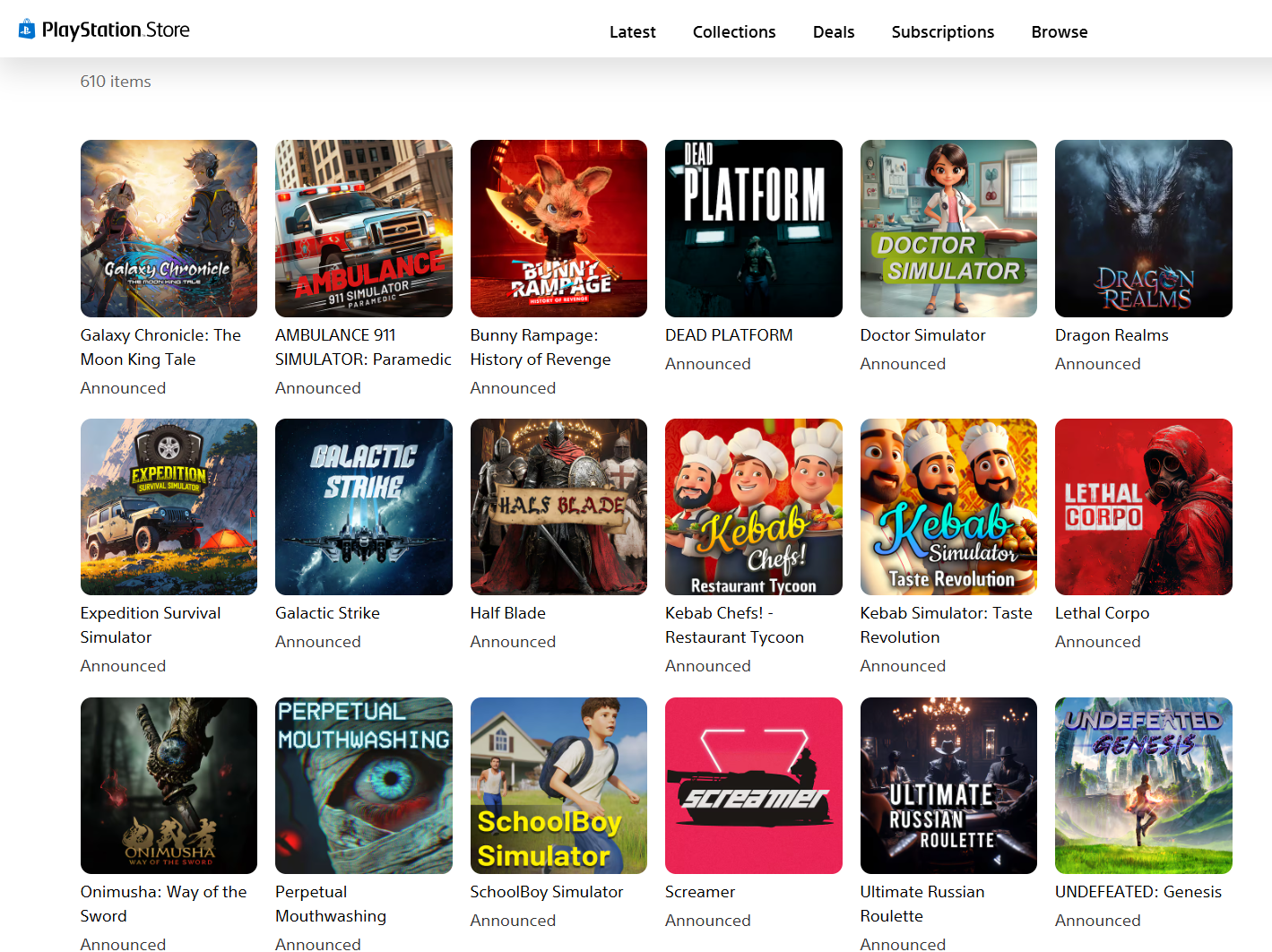
The discoverability problem exacerbates the issue. Xbox's curated pages make it harder for "slop" games to be seen, while PlayStation's "Games to Wishlist" tab prioritizes unreleased games by release date, pushing titles like “Ambulance 911 Simulator Paramedic” or “Kebab Simulator Taste Revolution” to the forefront. Steam, despite hosting numerous potential "slop" games, is less criticized due to its robust sorting and searching options and constant influx of new releases. Nintendo, on the other hand, simply dumps new releases into an unsorted pile.
All Games Allowed
Users have been vocal about wanting better regulation from Nintendo and Sony to stem the tide of these games. However, neither company responded to requests for comment on potential plans. Developers and publishers are skeptical about significant changes, particularly from Nintendo, with some suggesting only marginal improvements might come with the Nintendo Switch 2. Sony has previously addressed similar issues, such as with "spam" games in 2021, hinting at a possible future response.
However, not everyone believes stricter regulation is the answer. Initiatives like Nintendo Life's "Better eshop" faced backlash for incorrectly categorizing games as shovelware or using AI, illustrating the risk of overly aggressive filtering harming legitimate indie titles.
Concerns about platform regulation potentially affecting quality games were raised by a publisher, who noted the arbitrary nature of platform holders' judgments. Another developer expressed sympathy for the platform holders, recognizing the challenge of distinguishing between different types of games amidst a growing flood of submissions.
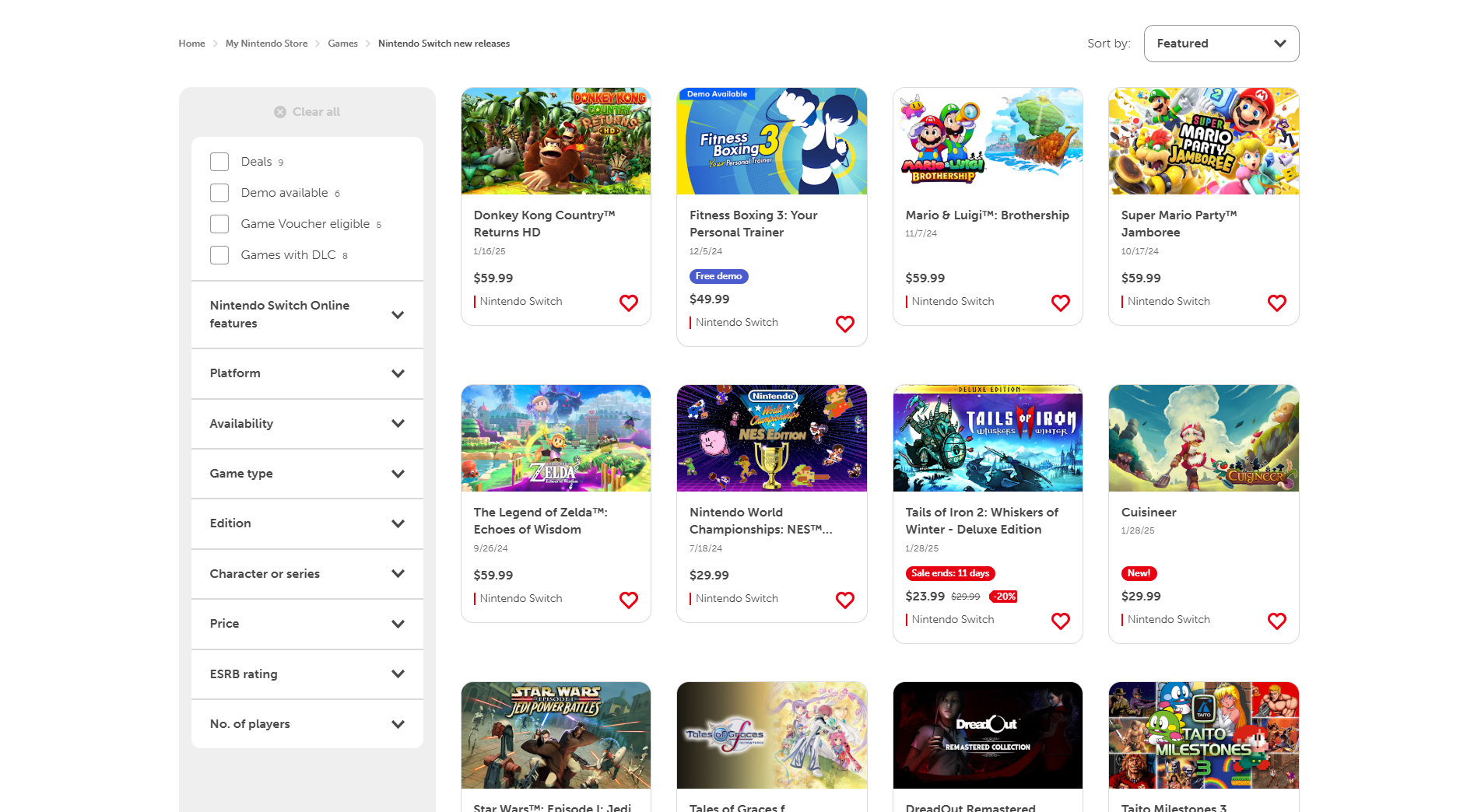
 Home
Home  Navigation
Navigation






 Latest Articles
Latest Articles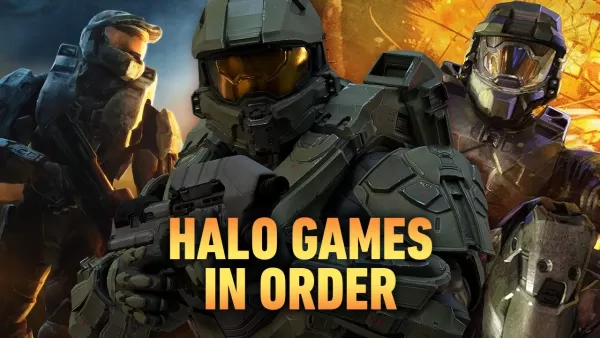
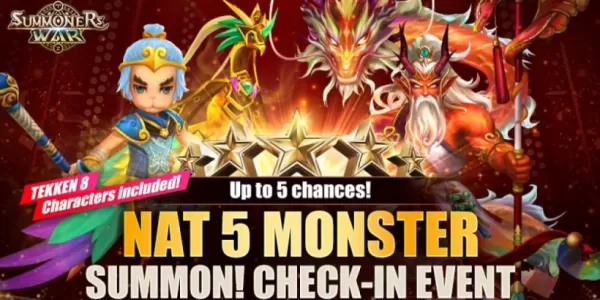
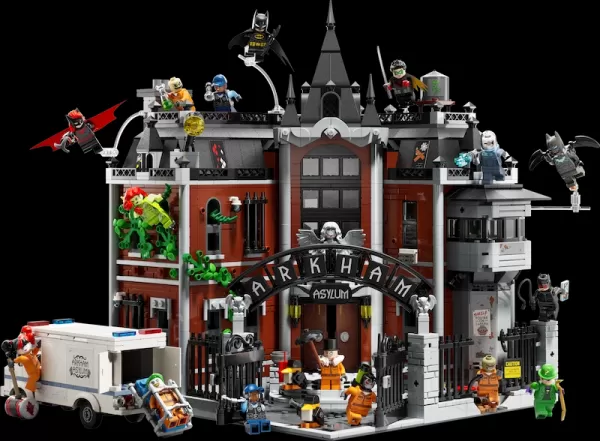
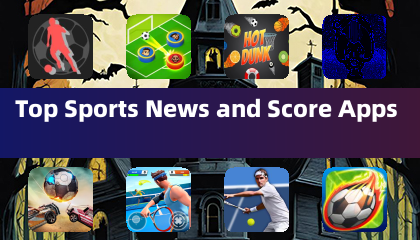

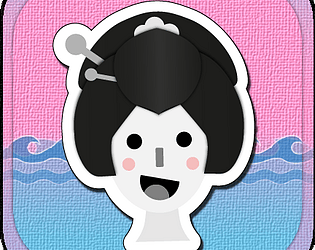


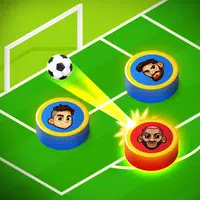
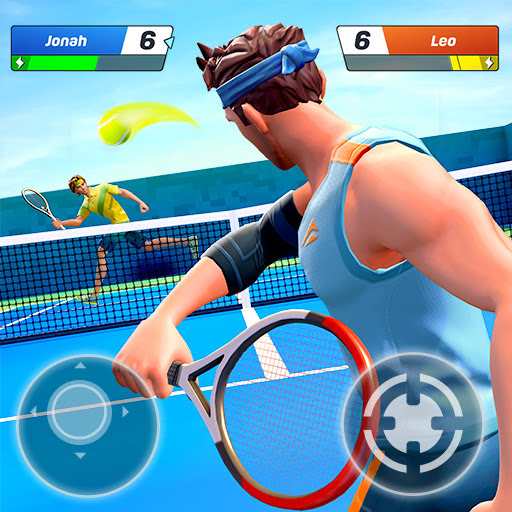

 Latest Games
Latest Games